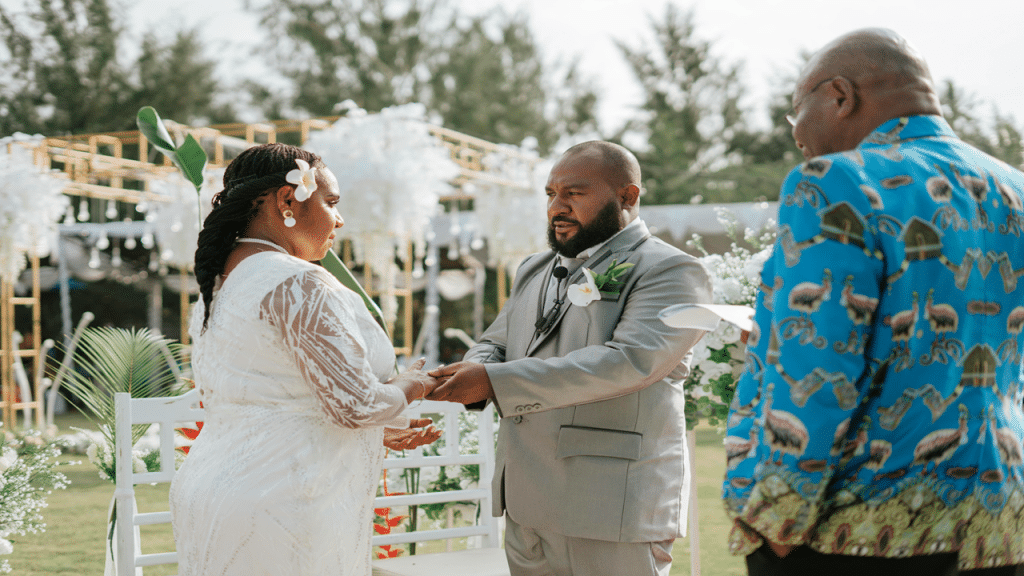
For all its beauty, love, and partnership, marriage also throws curveballs you don’t see coming. Some are small, while others shake the foundation.
This list isn’t here to scare anyone off. It’s here to lay it out, plain and simple. Because the more you understand the tough stuff, the more you’re equipped to handle it together.
Let’s get into the grit and grace of what marriage really looks like.
1. Love Won’t Always Feel Like a Fairytale

Some days, love feels electric. It’s easy, effortless, and full of magic like a scene out of a movie. Then there are days when it feels distant, buried under chores, bills, and sheer exhaustion.
That doesn’t mean the love is gone. It just means you’re living in reality. Real love is about showing up even when you’re both drained or distracted.
The fairytale might fade over time, but something deeper can grow in its place if you’re willing to nurture it.
2. Communication is Listening When You’d Rather Be Right

People love to say communication is the key, but what they often forget is that it’s hard to truly hear your partner when your pride is in the way.
It’s easy to get defensive, shut down, or to argue just to prove a point. Real communication goes beyond talking. It requires listening when it’s uncomfortable. It means asking, “What did you need from me?” instead of saying, “You’re overreacting.”
Marriage works better when both people focus less on being right and more on being understood.
3. Physical Intimacy Changes

In the early stages, intimacy feels constant and exciting. As the years pass, stress, responsibilities, and routine can cause it to slow down or change form. That can be scary if you’re not expecting it.
But just because it’s different doesn’t mean it’s gone. It simply needs a new rhythm. You’ve got to adapt, get creative, and prioritize connection in ways that reflect where you both are now. Intimacy that matures can be just as fulfilling. Sometimes it’s even more so.
4. You Will Annoy Each Other Repeatedly

Whether it’s the way they chew, how you fold laundry, or those ongoing thermostat battles, little things become big over time. When you’re with someone day in and day out, quirks can turn into pressure points.
But that doesn’t mean your relationship is broken. It means you’re two people trying to coexist. You can either nitpick your way into frustration or learn to accept each other’s weird habits with a little grace and humor.
5. Money Stress Hits Harder Than You Think

One partner might be a saver, the other a spender. One might feel calm with a tight budget, while the other wants to enjoy life without constantly checking the numbers.
It might not feel significant now, but once the well dries up and the habits don’t change, expect the tension to rise and put you in a state of tug of war.
These differences will eventually strain the marriage to the point that one end breaks. The sooner you talk honestly about financial habits and goals, the more stable your relationship will feel.
6. You’re Not Always the Hero in Their Story

In your own head, it’s easy to see yourself as the good guy. You may think you’re the thoughtful one, the peacemaker, or the hard worker.
But your partner might see something else entirely. Sometimes, you’re the one who causes hurt without meaning to. You might come off cold or dismissive even when you think you’re being logical.
That doesn’t make you a villain, but it does mean you need to recognize how your actions land. Self-awareness is what builds long-term trust.
7. Trust Can Fracture in Subtle Ways

Most people think trust only breaks during big betrayals like cheating or lying. But more often, it erodes gradually. A missed promise here, a dismissive tone there, a habit of tuning out when it matters.
Those things slowly chip away at a connection. Trust is built slowly through consistency and care. When it cracks, even slightly, it takes effort to repair.
8. Your Needs Will Clash Sometimes Loudly

You might crave quiet while your partner needs to talk things through. One of you might want time alone, and the other needs emotional closeness. Those differences can create friction, especially when stress runs high.
But it’s not a sign you’re mismatched. It just means you need to keep the conversation going. Understanding and respecting different emotional rhythms makes compromise possible, even if it isn’t always comfortable.
9. Some Fights Will Never Fully Resolve

Some disagreements keep showing up no matter how many times you talk about them. Some topics don’t have a perfect answer or neat resolution. That’s frustrating but also normal. The goal isn’t to eliminate conflict. It’s to fight in a way that still respects the relationship.
Can you disagree without making it personal? Can you pause before things get too heated? If so, you’re in better shape than you think.
10. Passion Can Fade Without Maintenance

Passion isn’t self-sustaining. Without attention and care, it gradually dims. Life gets busy, stress piles up, and romance can take a back seat. That doesn’t mean your relationship is doomed. But it does mean you’ll need to be intentional.
Reignite that spark through small gestures, scheduled time together, or simply showing your partner they’re still seen. Passion fades when ignored, but it also reignites when pursued.
11. You Might Miss Being Single Even If You’re Happy

It’s entirely possible to love your marriage and still miss parts of your old life. Solitude, freedom, spontaneity, those things don’t stop sounding appealing just because you’ve committed to someone. That feeling means you’re adjusting to sharing your life with another person.
Missing aspects of singlehood isn’t betrayal, but a reminder to carve out space for yourself within the partnership.
12. Parenting Can Break You If You’re Not Aligned

Having kids is one of the most rewarding things a couple can do, but it’s also one of the most taxing. If you and your partner aren’t working together, parenting can drive a wedge fast.
Differing discipline styles, emotional reactions, or even daily routines become battlegrounds. You’ve got to stay connected through the chaos. When you don’t, the cracks show quickly and deeply.
13. You’ll Face Temptations, and It’s What You Do Next That Matters

©A. C./Unsplash.com
A groom gazes at his bride during an outdoor forest wedding.
Attraction doesn’t shut off the moment you say “I do.” You’ll notice other people, and others will notice you. That’s human. But what you choose to do in those moments is what counts.
It’s not about pretending temptation never exists. It’s about reinforcing the commitment you’ve already made. Small boundaries and big decisions both protect the connection you’re building.
14. Apologies Aren’t Always Enough

“I’m sorry” is important, but it has to come from the heart. If there’s no change in behavior, no effort to repair what was damaged, apologies start to feel hollow. Your partner might need time or actions to feel safe again and trust your word.
True healing takes patience and a willingness to prove that things will be different going forward. Words start the process, but only effort brings real resolution.
15. Marriage Is Work Even When It’s Good

People often think something’s wrong if marriage starts to feel hard. But effort doesn’t signal failure. It signals intention. The best marriages still require maintenance, not because they’re broken, but because life constantly shifts.
If you’re not checking in, growing together, or making space for joy, things can drift. A good marriage doesn’t just happen. It’s built, rebuilt, and nurtured on purpose.






Ask Me Anything